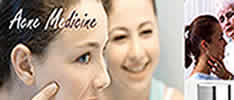For diabetes management and control, it is generally advised that the person should start to make adjustments on his lifestyle. This include maintaining a simple diet, eating foods that are less saturated with fat and cholesterol. By reducing or eliminating animal products and eating more fiber-rich plant foods such as whole grains, beans, fruits, and vegetables.
Eat a lot of foods that are rich in anti-oxidants. Plant-derived foods are rich in the anti-oxidant nutrient including beta-carotene and vitamin C and E. Anti-oxidants neutralize free radicals, preventing this unstable oxygen molecules from damaging healthy cells. Free radicals not only lay the groundwork for the most serious complications of diabetes, they are also the cause of high blood sugar level.
Include fiber-rich food to your diet. Foods that is rich in fiber helps in controlling the blood sugar level. It works by holding the nutrient in the digestive tract longer, allowing a slower absorption rate and reducing blood sugar ups and downs.
Soy products and Tofu can also help people with diabetes. Soy is a good source of amino acids, glycine and arginine, that help block the body’s synthesis of cholesterol.
Low levels of magnesium have been established in certain studies to be a factor in developing diabetes. Beef up your diet with magnesium rich food such as grains, nuts, and leafy green vegetables.


